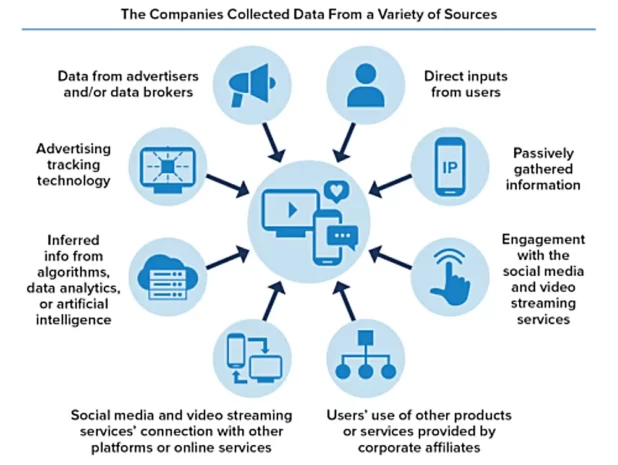How much personal data are social media and streaming platforms collecting and selling about you?
@tomcostellonbc digs into an eye-opening FTC report. pic.twitter.com/WHLaamXq0U— NBC Nightly News with Lester Holt (@NBCNightlyNews) September 19, 2024
Wow, I didn’t know this.
Social media and online video companies are collecting huge troves of your personal information on and off their websites or apps and sharing it with a wide range of third-party entities, a new Federal Trade Commission (FTC) staff report on nine tech companies confirms.
The FTC report published on Thursday looked at the data-gathering practices of Facebook, WhatsApp, YouTube, Discord, Reddit, Amazon, Snap, TikTok and Twitter/X between January 2019 and 31 December 2020. The majority of the companies’ business models incentivized tracking how people engaged with their platforms, collecting their personal data and using it to determine what content and ads users see on their feeds, the report states.
The FTC’s findings validate years of reporting on the depth and breadth of these companies’ tracking practices and call out the tech firms for “vast surveillance of users”. The agency is recommending Congress pass federal privacy regulations based on what it has documented. In particular, the agency is urging lawmakers to recognize that the business models of many of these companies do little to incentivize effective self-regulation or protection of user data.
…
Notably, the report highlights how consumers have little control over how these companies use and share their personal details. Most companies collected or inferred demographic information about users such as age, gender and language. Some collected information about household income, education and parental and marital status. But even when this type of personal information was not explicitly collected, some companies could analyze user behavior on the platform to deduce the details of their personal lives without their knowledge. For instance, some companies’ user interest categories included “baby, kids and maternity”, which would reveal parental status, or “newlyweds” and “divorce support”, which would reveal marital status. This information was then used by some companies to tailor what content people saw to increase engagement on their platforms. In some cases, that demographic information was shared with third-party entities to help target them with more relevant advertisements.
…
Several firms say it’s impossible to even compile a full list of who they share your data with. When the companies were asked to enumerate which advertisers, data brokers or other entities they shared consumer data with, none of these nine firms provided the FTC with a full inventory.
Who would have thought?

